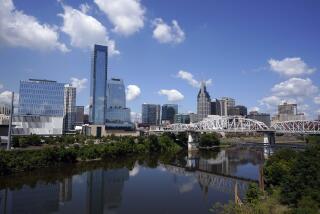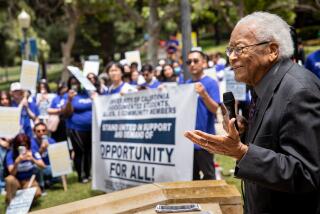Hearts of the City / Exploring attitudes and issues behind the news
- Share via
A rotating panel of experts from the worlds of philosophy, psychology and religion offer their perspective on the dilemmas that come with living in Southern California.
Today’s question: Individuals and societies are asked to forgive everything from personal slights to the war in Vietnam. What ethical factors should guide a decision whether to forgive?
Father Thomas P. Rausch, chairman of the department of theological studies at Loyola Marymount University in Los Angeles.
“Reaching out to someone who has hurt us is never easy. Harboring anger within is worse; it is corrosive, it tears at us. It is better to forgive, to seek reconciliation, which means moving beyond injuries and wrongs, usually on both sides. To do so is not easy. The Gospel remains a challenge: ‘Love your enemies, do good to those who hate you.’ If there was clear evidence that Vietnam was still detaining American POWs, reconciliation would be impossible, but there is none. The issue is not who was most wrong, who suffered most, or what President is sufficiently acceptable to all sides to take the step, but what is the right thing to do.”
Dr. Hassan Hathout, physician and author of books on biomedical and social ethics from an Islamic viewpoint.
“What would happen if we do not forgive? At the individual level more bitterness and hatred, and between societies more wars and bloodshed. As soon as injustices are corrected, the gates should be open to forgiveness. Who among us is not in need of God’s forgiveness? Well, the best way to qualify for it is to prove yourself a forgiver. Those who remain captive to the past are really destroying the future. The Koran says: ‘Nor can goodness and evil be equal, so answer back in the way that is more graceful; so that he with whom you had enmity will become--as it were--an intimate friend.’ ”
Richard J. Mouw, president of Fuller Theological Seminary in Pasadena.
“On the big historic events--wars, major crises, long-standing policies--I think human forgiveness is the wrong concept. How can I forgive Robert McNamara? How can President Clinton forgive the North Vietnamese? Who today can speak or act on behalf of people who were killed, families who lost a loved one, nations whose wounds still have not been healed? What we can do--and need to do--is to pray that God will forgive all of us. And we must also pray for the strength and courage to act on the opportunities created by divine mercy: to open up new conversations, to forge new partnerships, to work for healing relationships.”
Compiled by LARRY B. STAMMER/Times Religion Writer
More to Read
Sign up for Essential California
The most important California stories and recommendations in your inbox every morning.
You may occasionally receive promotional content from the Los Angeles Times.









